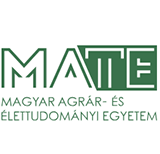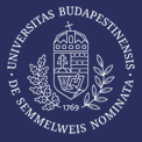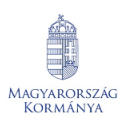Detailed introduction of Corvinus University of Budapest:
Introduction
Founded in 1853, Corvinus University of Budapest is located in Budapest, the capital of Hungary, close to the Danube River. It is one of the century-old prestigious universities in Europe. Its predecessor was the Royal University of Hungary. It is one of the best business and economics schools in Hungary and is a member of the European Management Association. The association's partner companies are all world-renowned multinational companies.
Overview
Student size: The school has about 11,500 Hungarian and international students.
Faculty: There are 539 faculty members, of which 94% are domestic and 6% are international.
History
The school was first established in 1853. It was originally the Royal University of Sciences of Hungary.
In 1953, it was named Karl Marx University of Economics.
In 1991, it was changed to Budapest University of Economics and Public Administration.
In 2003, the university merged with the Hungarian Horticultural University.
In 2004, the school was renamed to its current name.
School Strength
Teaching Resources and Facilities: The main teaching building, built in 1874, is part of the UNESCO World Heritage Site. Most of the business school's majors are located in the main building. The new teaching building completed in 2007 provides a building area of 50,000 square meters, including office buildings and teaching areas, as well as a student community and a central library with 450 seats and 100,000 books and journals.
Scientific research cooperation and academic achievements: As the top economic and social science university in Hungary, Corvinus University maintains close scientific research cooperation with many internationally renowned universities and companies. The school's scientific research results are widely recognized both in Hungary and internationally, and its teachers and students have published a large number of high-level papers in international academic journals. It became a member of the European Association of Management Schools in 1996 and a member of the Global Alliance for Management Education (CEMS) in 2010.
Nature of the institution
Public university.
Educational philosophy
Committed to cultivating high-quality talents with solid professional knowledge, innovative thinking and practical ability, focusing on the combination of theory and practice, encouraging students to actively participate in scientific research projects and social practice activities, improving students' comprehensive quality and competitiveness, and laying a solid foundation for students' future career development and personal growth. At the same time, it emphasizes cultivating students' international vision and cross-cultural communication skills to adapt to the development trend of globalization.
Key laboratories and disciplines
Key disciplines: Economics is one of the school's trump cards, ranking sixth in the world in the field of economics research. Its business school ranks first among the best business schools in Central and Eastern Europe, and has obtained the European Quality Improvement System (EQUIS) certification at the annual meeting of the European Foundation for Management Development (EFMD). In addition, social sciences, business management, food engineering and other disciplines are also key disciplines of the school.
Key laboratories: Although no specific key laboratories are explicitly mentioned, judging from its disciplinary advantages, relevant advanced laboratories and research centers should be equipped in the fields of economics and business to support teaching and scientific research.
Faculty
The school has three colleges, including:
School of Social Sciences and International Relations: It is the leading social science research college in Hungary. Each department explores theoretical development and applies practical problems in social science research to teaching. It also encourages researchers to cooperate with other internationally renowned universities to expand the scope of interdisciplinary social science research.
Business School: It is an education and research center for economics, financial management, management and organization, business, management science and management practice. Its education and research activities are internationally recognized, and its School of Business Administration is a member of several international organizations.
School of Economics: The basic goal is to provide education and research in the field of Hungarian economic policy embedded in the global and European context, to provide students with knowledge of a wide range of relevant topics in the world economy, the European Community and Central and Eastern Europe, and to help them develop careers in international or domestic economic management institutions or government agencies.
Ranking
QS World University Rankings 2025: between 1001-1200.
2023 THE World University Rankings: 1201-1500.
2023 THE World University Subject Rankings - Business and Economics: 601-800.
2023 THE World University Subject Rankings - Social Sciences: 601-800.
Costs
Tuition fees vary by major and degree level, as follows:
Undergraduate: Starting from $7 per year for Hungarian citizens and at least $5,000 per year for international students.
Master: $5,143 per year.
PhD: $3,354 per year for Hungarian citizens and $5,590 per year for international students.
Campus
Location and environment: The main campus is located in Budapest, the capital of Hungary, with the Danube River running through the city and beautiful scenery around the campus. As the political, economic and cultural center of Hungary, Budapest provides students with abundant internship and employment opportunities, as well as numerous cultural and entertainment venues.
Campus facilities: In addition to the historic main teaching building and modern new teaching building mentioned above, the campus is also equipped with complete teaching and living facilities, such as libraries, laboratories, computer centers, student dormitories, canteens, sports stadiums, etc., to meet students' learning and living needs.
-

Hungarian University of Agriculture and Life Sciences
-

University of Pécs
-

University of Debrecen
-

Budapest University of Technology and Economics
-

Semmelweis University
-

University of Pannonia
-

University of Szeged
-

Eötvös Loránd University
-

University of Miskolc
-

University of Sopron
-

Mesoamerican University
-

Istmo University
-

Mariano Galvez University of Guatemala
-

Regional University of Guatemala
-

Galileo University
-

Francisco Marroquín University
-

Rafael Landívar University
-

University of the Valley of Guatemala
-

University of San Carlos of Guatemala
-

Technological Institute of Tlaxcala Plateau
-

Golfo University
-

Technological University of South Sonora
-

Technological University of Huejotzingo
-

Tizimín Institute of Technology
-

Chilpancingo Institute of Technology

